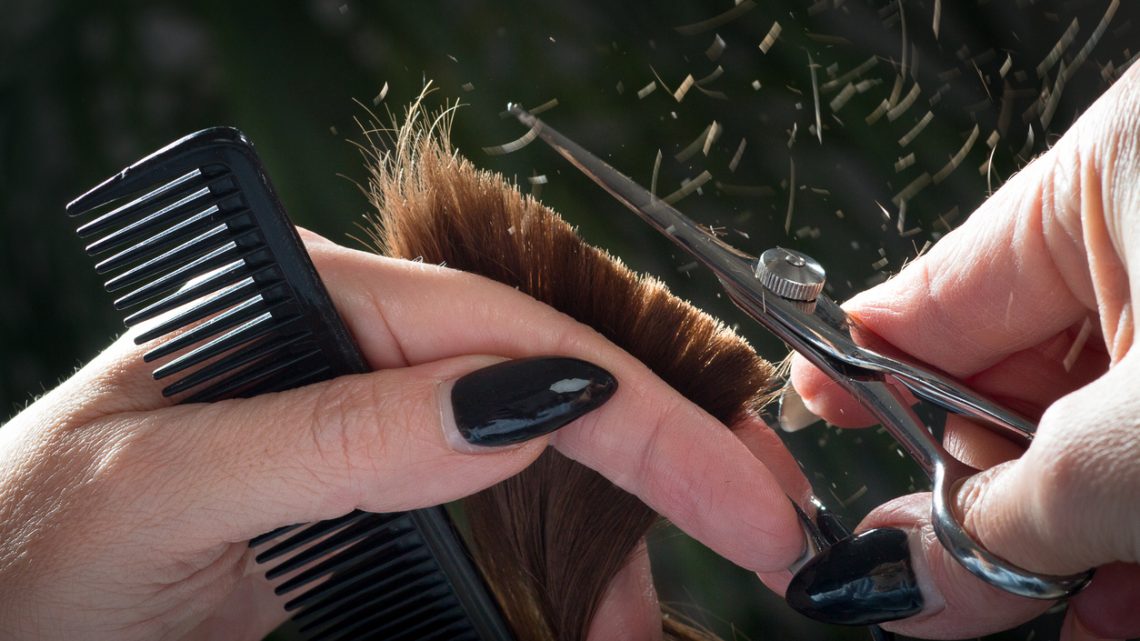When I was in high school, I’d have my hair cut by a family friend. Lorna worked at an upscale salon during the day, but she’d come to our home one evening every few months and cut my mom’s hair and then mine—at a discounted price, of course.
Now, Lorna was a talented hairstylist, but she was also a friend who felt quite comfortable opening up to us. She’d be snipping away at my mom’s hair and talking about the fun camping trip she and her husband had enjoyed. Snip, snip, snip. My mom would ask interested questions, and Lorna would chatter away happily. Snip, snip, snip.
“Thank you,” my mom would say, looking at the result in a hand mirror. “You know just how to work with my curly hair.”
But then sometimes Lorna wasn’t having a great day. As she stood over one of us sitting in our kitchen chair, she’d rant about her frustrations. “So, my husband brings home this enormous set of stereo speakers,” she’d share. Snip, snip, snip. “And I said, ‘Where are you going to put those monstrosities?’” Snip, snip, snip. “‘And how much did they cost? You might have discussed this with your wife!’”
On those evenings, the haircuts didn’t turn out so well. So my mom and I always tried to keep Lorna talking about happy subjects . . . at least until our hair was done.
Stop the blood!
Unfortunately, I was sitting in the chair the night she told us she was going to divorce her husband. “He’s just a lazy bum!” she reported. Snip, snip, snip. “And I’m tired of working long hours while he lounges around!” Snip, snip, snip. Her small, sharp scissors were flying through my hair, now grazing past my ear, now edging along my chin. “Yeah, his free ride is over!” Snip, snip.
“Ouch!” I cried, my hand rushing to my neck. It felt wet. Blood was running down to my collar.
“Oh, I’m so sorry!” Lorna exclaimed, patting the blood with a napkin my mom grabbed.
I ran to the bathroom. There, along my neck, was a gouge where her scissors had stabbed me. I cleaned up the wound and put a Band-Aid on it. When I returned to the kitchen—wondering whether I’d rather live with uneven hair or have her finish the haircut—I thought, Boy, when she’s good, she’s very good. But when she’s mad, she’s bad.
Hearing and healing
Wise King Solomon had a lot to say about anger—about avoiding fuming people and about controlling our own tempers. He advised, “Do not make friends with a hot-tempered person, do not associate with one easily angered” (Prov. 22:24, NIV). He would probably add that it’s also not a good idea to have your hair cut by an angry person!
But what if some of the people in your church fit this description? And what if you find yourself in the distressing position of being the listening ear—or worse yet, the target—of their anger? In this issue the Union College students in editing class courageously take on these conversations. They talk about what happens when anger, discord, and disagreement invade the body of Christ—and the damage is much more painful than a bad haircut.
Paul sent this strong warning to the Ephesian church: “Do not grieve the Holy Spirit of God, by whom you were sealed for the day of redemption. Let all bitterness, wrath, anger, clamor, and evil speaking be put away from you, with all malice. And be kind to one another, tenderhearted, forgiving one another, even as God in Christ forgave you” (Eph. 4:30-32, NKJV).
The body of Christ needs every part. Rather than cut and cause bleeding to any member, let’s hear and heal.
—Lori Peckham is an assistant professor of English and communication in the Division of Humanities at Union College. Previously she served as editor of Insight and Women of Spirit magazines.










